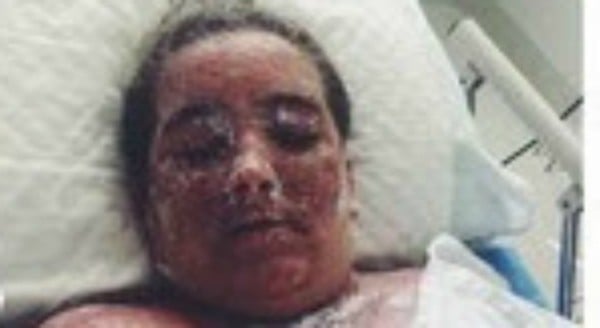
Sarah Cole, before she took the bleach bath. (Source: Facebook.)
Sarah Cole, a 29-year-old mother of three from Dapto, NSW, found herself hospitalised with horrific burns to 98 per cent of her body.
The cause? A specialist told her to soak in a bath of bleach to soothe her eczema. Alarmingly, what happened to Cole’s skin was the exact opposite of being soothed or healed: angry, red, life-threatening burns.
Cole had experienced eczema since birth. She and her mother visited a skin specialist in an attempt to figure out a way to treat her skin condition. The skin specialist suggested that she bathe in a mixture of bleach and water, and according to The Daily Telegraph, she and her mother “baulked” at this dangerous advice.
“I can remember saying to him ‘there’s no way in hell I’m going to bath in bleach, that’ll burn like crazy’ but he said to me and my mum ‘no, no, you have to try it,’” she explained.
Related: “The gory beauty treatment that made my face go crazy.”
After pouring a whole cup of bleach into the bathwater, Ms Cole soaked her entire body in it. The initial pain that Ms Cole experienced in the bath was nothing compared to the terrifying damage that would surface two days later.

